Customer-Dedicated Machining Cells To Assure Quality And Commitments
Kenlee Precision Corp. began operations in Baltimore as a general practice job shop in 1969. The business was started on the typical shoestring, with some borrowed capital, a few machine tools and plenty of moxie on the part of President/ Owner Ken Lewis.
Kenlee Precision Corp. began operations in Baltimore as a general practice job shop in 1969. The business was started on the typical shoestring, with some borrowed capital, a few machine tools and plenty of moxie on the part of president/ owner Ken Lewis.
Ten years ago, Kenlee was "chasing our tail, so to speak," according to Mr. Lewis, trying to satisfy the needs of more than 100 different customers. About that time, an opportunity to try something he had been contemplating presented itself. One of his customers was soliciting bids for various components used in military hardware applications. The parts required high quality and prompt delivery. Upon winning the contract that called for production assurances from the supplier and long-term product life cycle from the customer, Kenlee installed their first dedicated "factory cell." The cell included the machine tools, inspection equipment and trained personnel in tune with the customer's delivery and quality requirements. The success of the venture for Kenlee depended on the cell's profitable production of long part runs of 65 different components for the M-240 machine gun and barrel extensions for the M-16 rifle. The venture paid off for the customer in terms of consistent part quality and just-in-time deliveries before JIT became an industry buzzword. Once the concept was proven, Mr. Lewis set out to revamp Kenlee Precision as a facility structured as "cellular factories within a factory." He looked for long part runs in industries with long product life cycles, such as electronics and medical devices. By their very nature, the industry/product niches chosen by Mr. Lewis have high and ultra-high quality requirements. In turn, they call for high and ultra-high precision machine tools. "You can't inspect quality into the part," says Mr. Lewis. "It has to be manufactured into the part."
Inspection, of course, goes hand-in-glove with the overall manufacturing process to assure high quality. To this end, Kenlee set out to equip each cell for the growing number of in-house "factories" with the machine tools that would deliver the needed manufacturing quality and inspection systems that would assure that quality. Some of the machines were already on hand and needed only to be integrated in the cells. Others had to be purchased based on the specific customer needs. Each cell is set up and dedicated to an individual customer. Generally, the criteria are businesses that will exceed a half-million dollars a year and product life cycles of 5 to 10 years or more.
Kenlee's first need for a truly ultra-precise machine tool came in the late 1980s. The project, an aluminum wrist component for a robot, required zero tolerance on angularity of final bores prior to assembly. The machine tool purchased for the job, a model 4DN jig borer from Mitsui Seiki, Inc. (Franklin Lakes, New Jersey) "repeats true position on hole sizes to 20 millionths of an inch," according to Mr. Lewis. The component is assembled in tiers, with holes bored in each tier absolutely true to the holes in all other tiers. Six datum points established for the tiers must remain constant through all stages of machining and assembly. In an environmentally controlled QC room, a Zeiss CNC coordinate measuring machine that floats on an air column and is totally mapped, verifies the "millionths" accuracies. The next ultra-precise machine tool Kenlee purchased for a cell was a Mitsui Seiki HT3 jig mill machining center needed to build a customer's metal-to-rubber and metal-to-metal die sets for automotive and petrochemical applications. Holding tolerances to a guaranteed 40 "millionths," Kenlee machines tops and bottoms separately. The tops and bottoms are shipped to the customer as "interchangeable" sets, not as traditional "matched" sets, much to the customer's initial surprise reaction. The maximum deviation they've ever had on this job is 0.000040 inch. Kenlee builds a complete tooling package for each die set. The die sets are categorized by such variables as complexity and machining time required, and are priced by category. Orders come into Kenlee via e-mail, a service available to all their customers.
More than a half-dozen ultra-precise Mitsui Seiki jig mill machining centers have since been incorporated into factory cells in Kenlee's Baltimore operation. The long term precision provided by these machining centers is essential to the accuracy requirements of the many medical components that make up a large percentage of Kenlee's long term contracts.
As Kenlee's reputation has expanded, so has Kenlee. In addition to the facilities in Baltimore, and their broad range of ultra-precision machining capabilities, especially with their Mitsui Seikis, they have recently established two branch plants in Florida, one in Daytona Beach and the other in Tampa to be close to Southern customers. These are also customer-dedicated factory-cell facilities. They have the same machine tools and TQM equipment as in Baltimore, are networked, and can produce the same parts in Baltimore for optimal JIT delivery, overriding production schedule changes as well as equipment downtime.
Kenlee continues to grow; in size, with a fourth plant being planned; and in quality, with ISO 9000 certification scheduled for the first quarter of next year.
Where Kenlee Precision Corporation once "chased their tail" trying to juggle the needs of more than 100 different customers, they are now organized and equipped as high quality part producers dedicated to the divisions of several major manufacturers. They are successfully "cell-ing" their customers with in-house factories of the future, today. MMS
Related Content
Watchmaking: A Machinist’s View
Old-world craftsmanship combines with precision machining on a vertical machining center and Swiss-type lathe to produce some of the only U.S.-made mechanical wristwatch movements.
Read MoreChoosing The Right Grinding Wheel
Understanding grinding wheel fundamentals will help you choose the right wheel for the job.
Read MoreInside an Amish-Owned Family Machine Shop
Modern Machine Shop took an exclusive behind-the-scenes tour of an Amish-owned machine shop, where advanced machining technologies work alongside old-world traditions.
Read More10 Things to Know About Creep-Feed Grinding
Because of the high material removal rate creep-feed grinding can deliver in challenging materials, grinding might not be just the last step in the process—it might be the process.
Read MoreRead Next
The Cut Scene: The Finer Details of Large-Format Machining
Small details and features can have an outsized impact on large parts, such as Barbco’s collapsible utility drill head.
Read More3 Mistakes That Cause CNC Programs to Fail
Despite enhancements to manufacturing technology, there are still issues today that can cause programs to fail. These failures can cause lost time, scrapped parts, damaged machines and even injured operators.
Read More





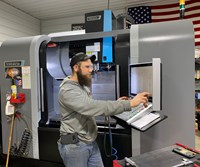
.jpg;maxWidth=300;quality=90)

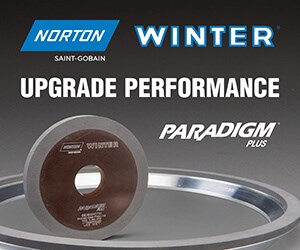



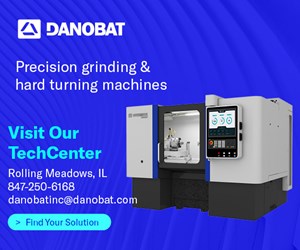


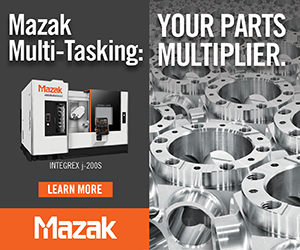

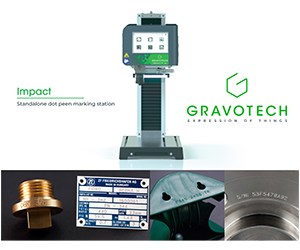
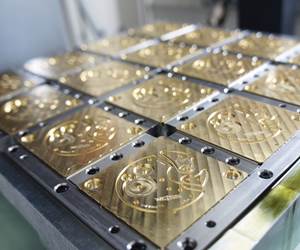
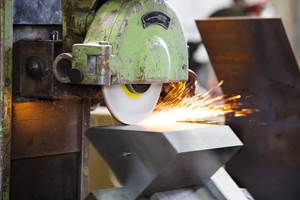
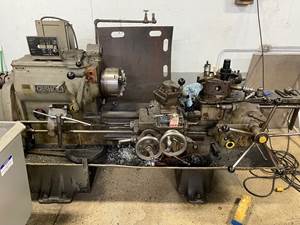
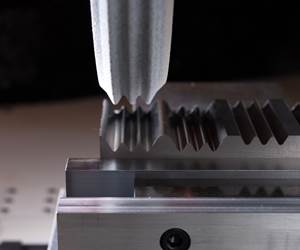



.jpg;maxWidth=970;quality=90)